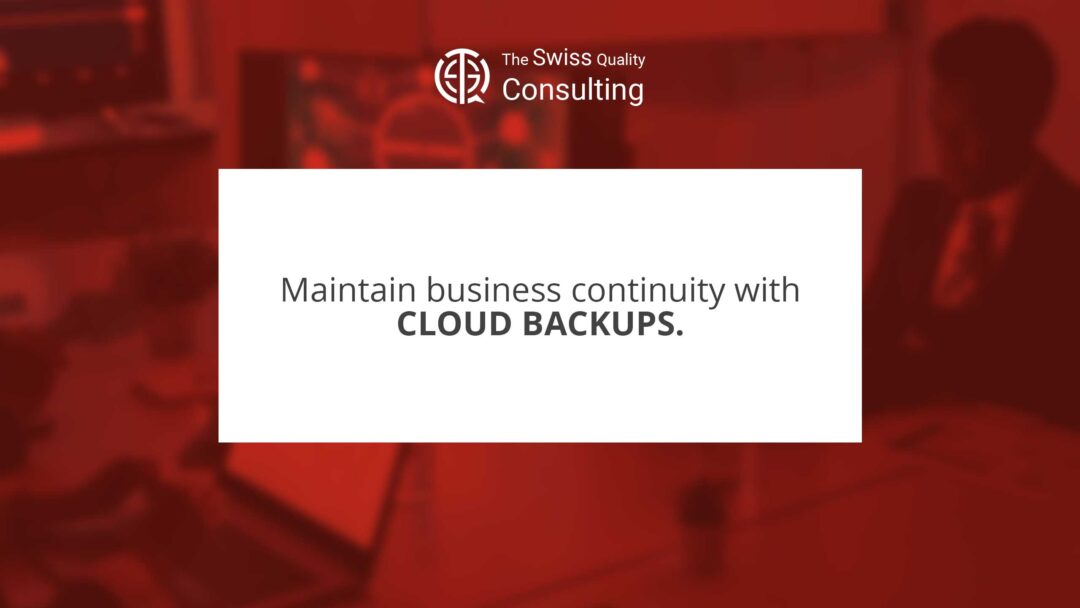Securing Business Data and Operations in the Cloud
Introduction
In the current digital age, maintaining business continuity with cloud backups has become a fundamental aspect of organizational resilience. This article is crafted for business executives, mid-level managers, and entrepreneurs who are looking to enhance their understanding of how cloud backup solutions play a pivotal role in ensuring uninterrupted business operations.
The Criticality of Cloud Backups in Business Continuity
In today’s interconnected and data-driven world, cloud backups have become an indispensable tool for businesses seeking to safeguard their critical data and ensure operational continuity. They provide a reliable, secure, and accessible repository for storing data, offering businesses a lifeline in the event of unexpected disruptions, such as natural disasters, hardware failures, or cyberattacks.
Traditional on-premise data storage methods often fall short in providing the necessary level of protection and resilience. Physical servers and on-site storage facilities are susceptible to physical damage, environmental hazards, and potential breaches. Additionally, they lack the scalability and accessibility required to support growing data volumes and evolving business needs.
Cloud backups offer a comprehensive solution to these challenges. By storing data securely on remote servers in the cloud, businesses gain access to a robust and redundant data storage solution that is protected from localized disruptions. Cloud backups also provide near-instantaneous accessibility, allowing businesses to restore data quickly and seamlessly in the event of a data loss incident.
The benefits of adopting cloud backups extend beyond data protection to encompass a wide spectrum of advantages, including:
Reduced Risk of Data Loss: Cloud backups provide an extra layer of protection against data loss, minimizing the impact of hardware failures, software glitches, and human errors.
Enhanced Disaster Recovery: Cloud backups ensure business continuity in the event of natural disasters, power outages, or cyberattacks that disrupt on-site operations.
Scalability and Flexibility: Cloud storage can be easily scaled to accommodate growing data volumes and changing business requirements, without the need for costly hardware upgrades or physical expansions.
Reduced IT Costs: Cloud backups offload the burden of data storage and maintenance from internal IT teams, freeing up resources for more strategic initiatives.
Accessibility and Collaboration: Cloud backups provide secure and accessible data storage, enabling remote data access and collaboration among team members.
In essence, cloud backups are not merely a technological solution; they are a strategic investment that safeguards businesses against data loss, promotes operational continuity, and enhances data accessibility. By embracing cloud backups, businesses can protect their valuable assets, maintain business continuity, and gain a competitive edge in today’s data-driven world.
Enhancing Data Security and Accessibility
By leveraging cloud backups, businesses can significantly enhance their data security and ensure easy accessibility, enabling quick recovery and minimal downtime in case of emergencies.
Role in Change Management
Integrating cloud backup solutions is an integral part of change management for businesses adopting digital transformation. It involves shifting from traditional backup methods to more robust and scalable cloud-based solutions.
Navigating the Digital Transformation Journey
Effective change management strategies are necessary for the successful adoption of cloud backups, ensuring a smooth transition and alignment with business continuity plans.
Impact on Executive Coaching and Leadership
Leadership is vital in the successful implementation of cloud backup strategies. Executive coaching services now focus on equipping leaders with the knowledge and skills required to oversee digital transitions and manage cloud-based solutions effectively.
Leading with a Future-Ready Mindset
Through executive coaching, leaders are prepared to spearhead digital initiatives like cloud backups, fostering a culture of innovation and readiness for future challenges.
Effective Communication in Cloud Backup Integration
Clear communication is essential in the process of implementing cloud backup solutions. It involves explaining the benefits and operational changes to employees, stakeholders, and IT teams.
Ensuring Organizational Alignment and Understanding
Effective communication ensures that all parties involved understand the importance of cloud backups and are aligned with the new data protection strategies.
Generative AI in Enhancing Cloud Backup Solutions
Generative Artificial Intelligence (AI) plays a significant role in augmenting cloud backup solutions. AI technologies can automate data backup processes, optimize storage, and enhance data recovery protocols.
Leveraging AI for Smarter Data Protection
Generative AI introduces advanced capabilities to cloud backups, enabling businesses to implement more efficient, intelligent, and responsive data protection strategies.
Conclusion Maintaining Business Continuity with Cloud Backups
In conclusion, maintaining business continuity with cloud backups is essential for modern businesses to protect against data loss and ensure uninterrupted operations. Adopting cloud backup solutions, coupled with generative AI technologies, provides businesses with a robust framework for data protection, operational resilience, and long-term success.
#BusinessContinuity, #CloudBackups, #DataSecurity, #DigitalTransformation, #AIinDataProtection









